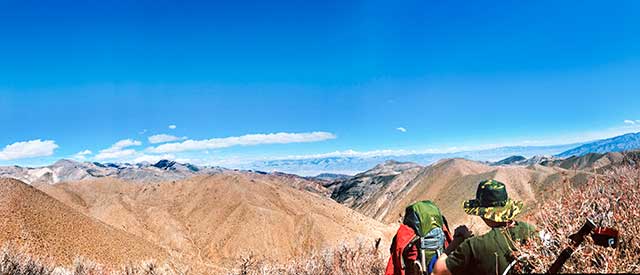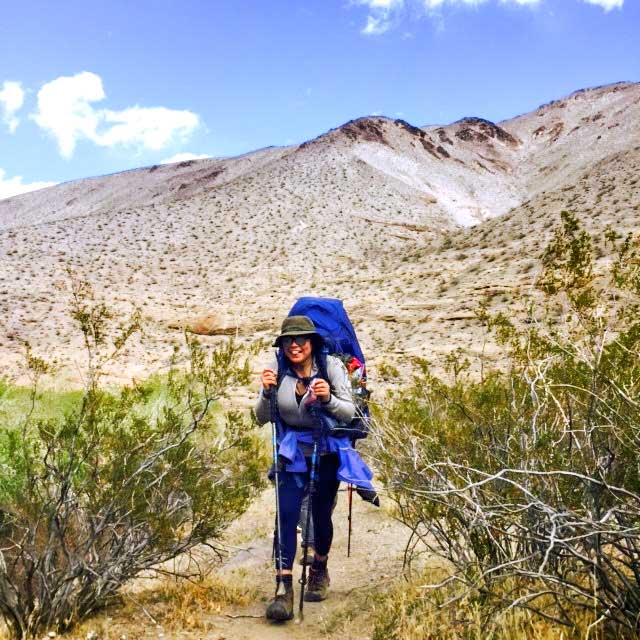
It’s also the place where Humboldt State University students recently backpacked and slept for one week to practice their outdoor leadership abilities by sharpening their personal and technical skills.
Their trip to Death Valley National Park in March is part of REC 430. Taught by Recreation Administration Professor Geneviève Marchand, the course helps students develop a strong understanding and appreciation of the outdoors. In fact, according to Marchand’s research, students who took outdoor recreation education classes reported a higher pro-environmental attitude than those who didn’t.
Part of the course entails planning every aspect of the trip such as food ratios, equipment logistics, transportation, emergency and evacuation procedures, the itinerary, and media and promotion. Students also learn theoretical principles of decision-making, group development, risk management, and leadership style.
This past spring 16 students put theory and their plans to the test. With the guidance of Marchand and other instructors, they took turns leading the group, which meant making decisions and learning from their mistakes and gave each other feedback each evening.
“It’s a huge part of the learning process and one that’s common and highly effective in the development of outdoor leaders,” says Marchand.

Recreation Administration student Diana Lopez says that lack of communication between her and her co-leader slowed things down. “When we were in charge, we wasted a lot of time planning things we should have planned the night before. And we were at risk taking too long to lead the group to the next location,” she says. “I was also told that I question my decisions when I know the information. I always second-guess myself, knowing already what I have to do.”
Jennifer Chamale also learned a lot about her leadership style on the trip, which helped her improve leadership and character development skills.
“Personally, I learned I have a hard time being authoritative,” says Chamale.
For Lopez, being part of the team helped her build and refine technical, interpersonal, and intrapersonal skills, as well as gain professional work experience.
“One thing we all had to do was get ourselves out of our comfort zone,” she says. “When you don’t have access to technology or a roof over you, it comes down to pushing yourself to your limits and doing things you never thought you could do.”
The team backpacked around canyons and climbed extremely steep hills with up to 60 pounds of food and gear on their backs. Lopez recalls making the challenging trek with Michael Anhorn.
“We hiked to a peak, when we got up there, it was super emotional,” Lopez says.
“I had Michael there with me trying to make us both feel better. I was tired, his asthma was kicking in for him, and the rest of our group was at the top cheering us on,” she says.
Lopez says the view of Death Valley from the top was beautiful, and a moment in which she knew her hard work was worth it.
Anhorn says the most memorable part of the trip was camping out at Cottonwood Canyon, where the weather conditions took a bad turn.
“At 10 o’clock, after our teacher Marchand’s tarp shelter came apart four times due to the extreme wind, she decided to move campsites,” he says.
Unpredictable moments like this offer valuable lessons. Marchand says students were involved in the decision to move the campsite, which gave them first-hand experience managing potentially risky outdoor situations.
Anhorn says the experience taught the students how to work together in critical situations and refine their risk management skills.
The Death Valley trip taught these students to prepare for the unexpected and reminded the students why they do what they do.
“Outdoor recreation and adventure aren’t just about having fun on field trips. It’s about forming a closer community and working with others,” says Lopez.